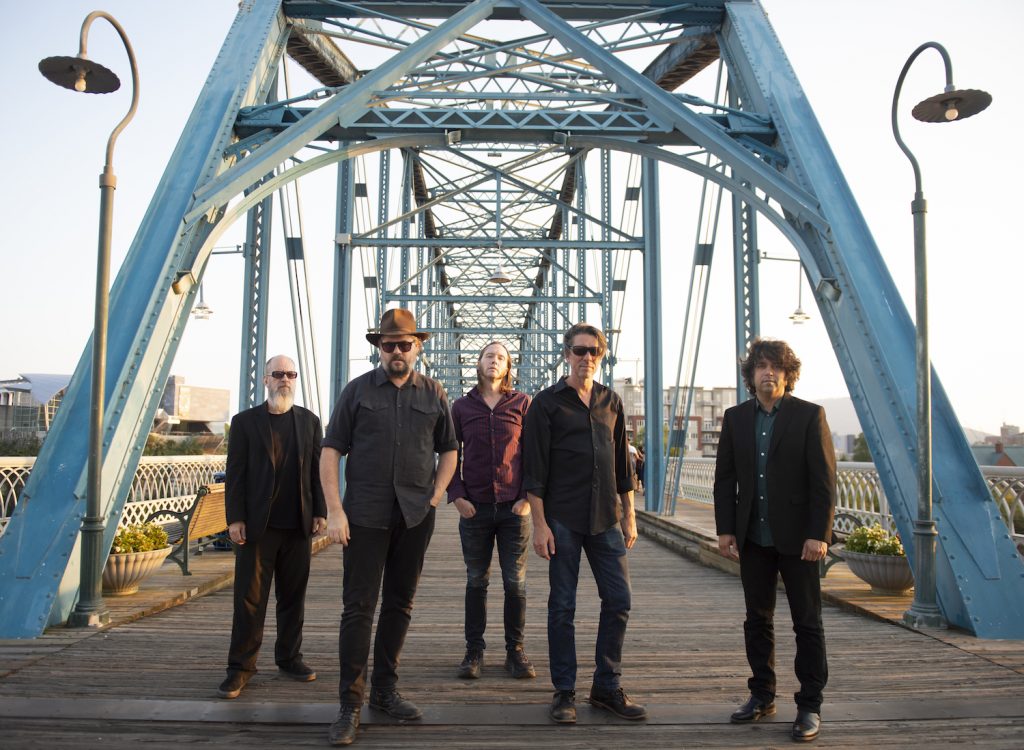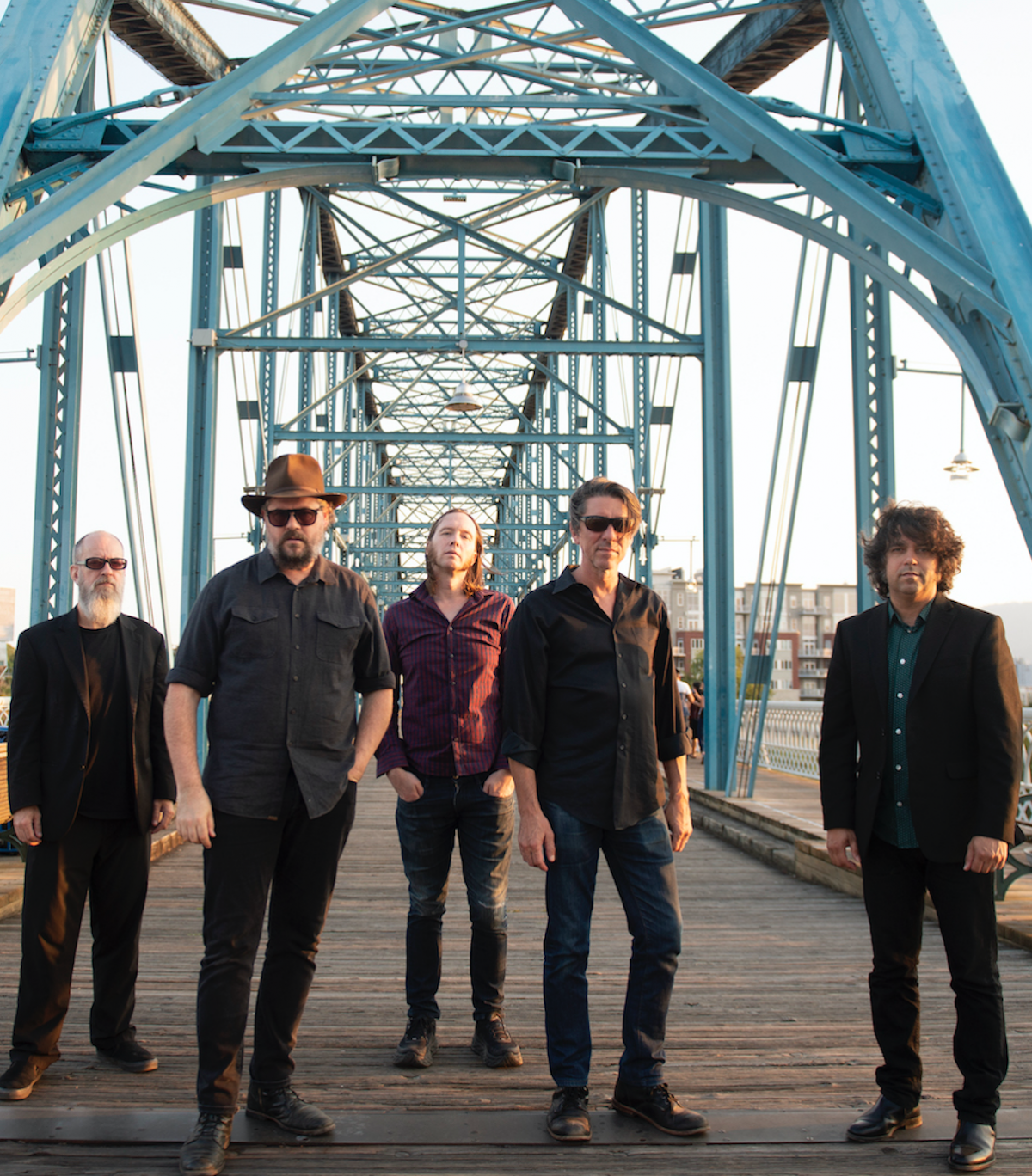
Drive-By Truckers’ American Band arrived at the perfect time in the fall of 2016. A celebration of the actual core values that define this country and a brutally honest depiction of our flawed humanity, the acclaimed release was just the salve to soothe inflamed psyches during a tumultuous election season.
So here we are in another election year, and DBT’s Patterson Hood isn’t wasting an opportunity to vent on The Unraveling (ATO). That anger colors his storytelling in the best sense, from the inexplicable despair of mass-shooting opus “Thoughts And Prayers” to the futile small-town narrative of “21st Century USA” to the anti-immigration horror show of “Babies In Cages.” For ominous eight-minute parting shot “Awaiting Resurrection,” Hood stages an intervention of sorts, getting in our faces with the realization that it’s up to us to turn this thing around. Supplemented by two more great tracks from DBT co-founder Mike Cooley, The Unraveling might’ve worked as a second disc to American Band, if it were conceived as a four-sided concept album along the lines of 2001’s Southern Rock Opera. At the very least, it’s a fitting sequel.
In a recent chat, Hood explains the origins of the angst that informs The Unraveling,while insisting that there’s still hope to be had. But the clock is ticking.
The Unraveling feels like the ultimate gut check. It’s angry, it’s blunt, and it’s also really sad.
This was a hard record to write. It was kind of a challenge trying to figure out how to achieve what we wanted to achieve and have it still be a record somebody would want to listen to. Leading up to it coming out, I didn’t really know whether it was going to be received well or not. The fact that it seems to have hit a nerve with so many people has been gratifying, but I wasn’t really expecting it this time.
You could argue that this album and American Band are two sides of the same coin, so to speak.
Before American Band, we’d write about something in the form of a story or something set in another time. With Southern Rock Opera, even though it was set in the ’70s, to me it was still relevant when we made it. With American Band, the songs were set in the right now, and they seemed to become even more timely over the next two or three years. This record is sort of an extension of that one, except with a more personal slant to it. It’s about trying to raise your family in the midst of all this madness—trying to explain the lockdown drill to your kids and all that shit. I have 15-year-old and a 10-year-old. It’s fucked up.
I’ve always equated your storytelling to that moment at a bar when interests and intellects collide, the beer buzz is just kicking in and the discussion turns to the stuff we all have in common—some of it profound, the rest life’s seemingly mundane little details. I think that’s especially true on The Unraveling.
All of our records are personal to me, but this one seemed to take on a different level. It’s been a rough few years on just about every level but a professional one. We moved cross-country (to Oregon), and there were a lot of hardships associated with that. I keep up with current affairs and the political climate, and there’s been a lot of turmoil associated with that. There are some pre-existing conditions in my family that would make health insurance precarious if they’re ever able to undo the Affordable Care Act. So I’m not sure I was in the best mental and emotional state—and getting old is a bitch. All of that played into the way this record came out.
Drive-By Truckers have had a long and fruitful relationship with producer David Barbe. What role did he play in making these last two albums so lean and mean?
It’s not a typical producer/band relationship. He’s very much part of the band. We challenge each other; we push each other not to repeat ourselves—and the last two records have been engineered by Matt Ross-Spang (Jason Isbell, Margo Price), who’s amazing. We all wanted this record to sound really different from the last one. With American Band, we mixed it almost mono. On this one, we kind of went the opposite way: wide-screen and cinematic. Matt had some really great ideas about that when he came in to mix it with David. As hard as this record was to write, it was fun to record.
Many of songs on The Unraveling are fairly direct in their sentiments. One that’s a bit more mysterious is “Armageddon’s Back In Town.” What was the inspiration behind that?
I’m honestly not sure. [Laughs] That and “Rosemary With A Bible And A Gun” are different types of songwriting for me. “Armageddon’s Back In Town” implies a story that it really doesn’t bother to tell. There’s a lot of imagery and a lot of moving from town to town … That might be one that I figure out a year or two from now.
And then there’s the finale, “Awaiting Resurrection.”
That one revisits all the other ideas on the record—ties all the loose ends together and leaves you standing on that beach watching the sunset. The album cover we chose was inspired by the end of that song. It’s my son and one of his best friends, whose dad actually took the picture, which is fucking beautiful. We’d cut about 18 songs, so there were a lot of different ideas about what this record was going to be before we honed in on what we wanted. I didn’t want a cover that looked like any of our other covers, and I wanted it to be photo based. I stumbled on that picture, and it immediately spoke to me. You’re standing there, the sun’s going down, and it’s kind of beautiful—but it’s also kind of eerie.
How’s life in Oregon?
I love it. It’s made me enjoy the South more. Now I don’t have to deal with the day-to-day things that were pissing me off; I can go back home and enjoy the people I love, the restaurants I love. And I hate summers. The summers in Oregon are pretty fucking amazing.
—Hobart Rowland







